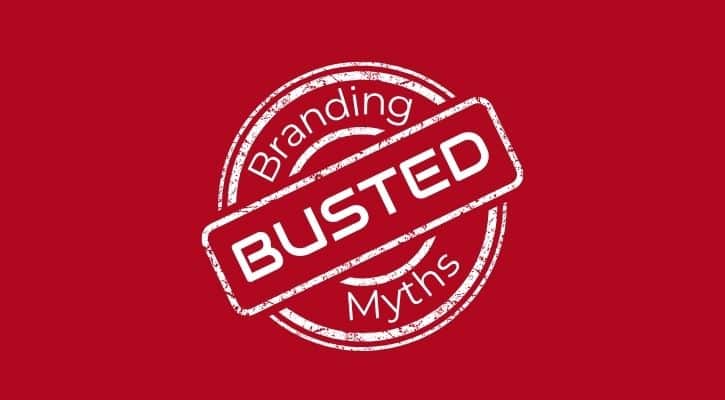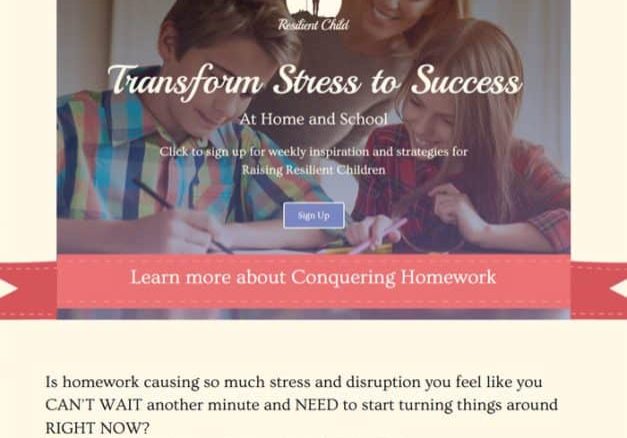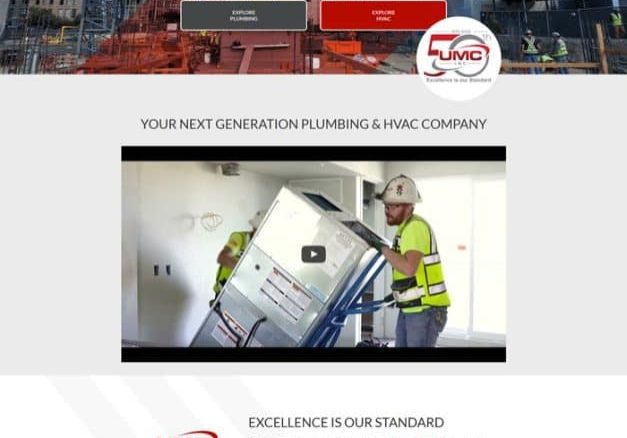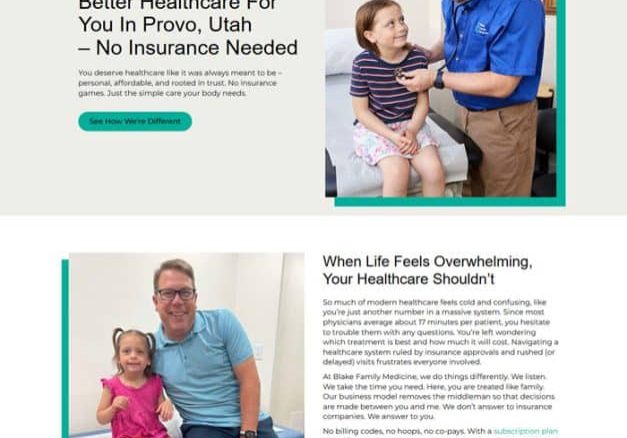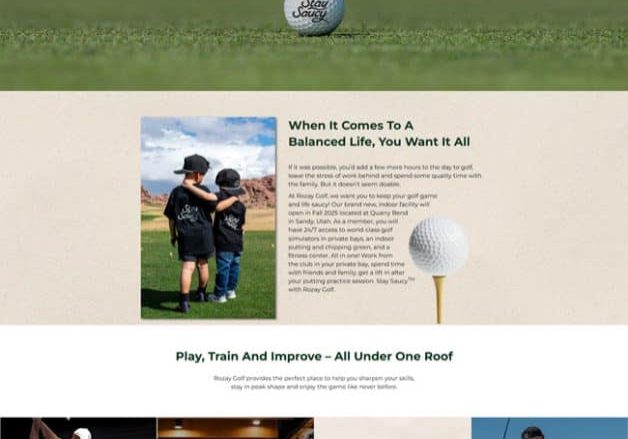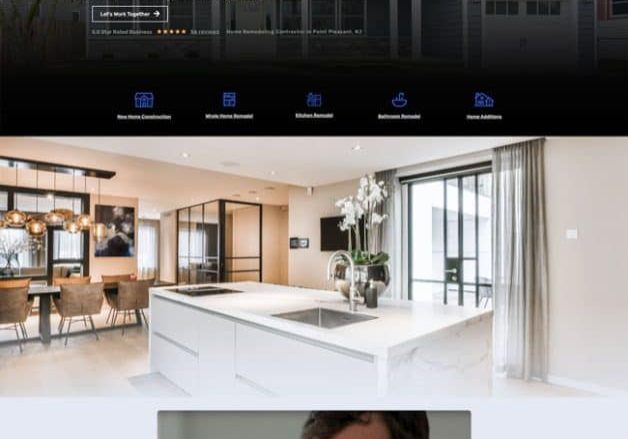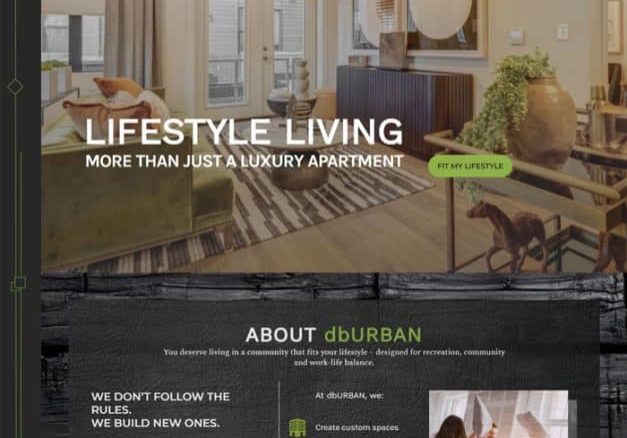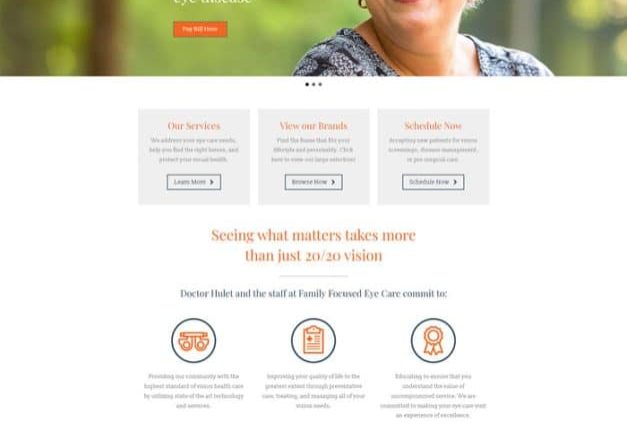Advice for New Business Owners and Those Looking to Level Up
May 2, 2024

What advice would you give to someone starting out with a new business and just setting up a website?
You either have time or money, but rarely both. A professional website is thousands of dollars. If you have the funding, then that’s a different ball game.
But if you are just beginning with an idea, you have two options:
Do you buy a new website or do it yourself?
As you consider these options, remember:
- Time is valuable. Are you going to be a business owner or a freelancer? Beware of the time trap. You are limited on what you’re able to do. If you’re spending all your time on creating the website, what else is suffering? Don’t give away your time, especially when you’re just getting started. You can do DIY, but make sure you’re still doing other things that will move the needle for your business, like building relationships or networking. It’s a mentality shift. You have to want to be a business owner versus someone who is playing with a side hustle.
- You can’t do life alone. It’s very difficult to do that. While you can launch a business by yourself, you can’t scale it with only one person. There’s a cap on how much you can handle and how much time you have. The best thing we did was to hire help. It felt like a stretch at the time. To be honest, I haven’t seen a lot of entrepreneurs who succeed without getting help. Be sure to build relationships with others. Become the kind of person you want to interact with. Be reliable.
- I see a lot of companies who want their clientele to trust them. The best advice? Don’t try to cut corners. When you’re starting a company, don’t take on more than you can handle. Pay your vendors. Pay the people who support your business. You can’t fake it. Be the type of person who can be counted on. There’s no need to manipulate other people to achieve an end.
Where do you even start?
- First, have a plan - you don’t have to be perfect. Have some direction and know where you want to go. You can’t foresee everything. Once data comes in, be flexible with your plan.
- Next, figure out your expectations ahead of time. This avoids lots of trouble. It’s better to talk about things, do research and study before signing a contract rather than trying to renegotiate a contract midway through a project. Be specific. Be realistic with what you have and what you can do. Educate yourself on what it takes. Be fair.
- Do things in phases. You don’t have Apple’s budget. Don’t expect the world. Buy a template and do it on your own. Take into account the marketing and everything that will drive your business. When you build a website without a marketing plan, it’s like building a store in the desert. You’ve got to build the roads, post the signs and let people know where you’re at. Take into account that you have. Sometimes it’s better to have less of a website and more invested in marketing.
- Not everything is going to go the way you think it's going to go. Know that the big companies have always pivoted. Their website does not look the same as the day they first set it up. Change it up! Put your best foot forward with what you have.
- Finally, make sure your website has the ability to collect data. Get customer responses so that you are ever improving. Take one step outside of your comfort zone. It might be uncomfortable to put something up that’s not airbrushed. You learn, you modify, you fix. You’ll never be perfect and neither will your website. Don’t get hung up on the minor things that don’t matter.
What are some common pitfalls you see in people just starting out?
- Perfectionism and trying to go it alone are huge!
- Aside from that, don’t try to take on more than you really can. When you get started, start small. You don’t need to have it all at once. Trust the natural growth and learning process. You have to build on your current knowledge. Remember: everybody’s risk/reward threshold is different.
- Know who you are. What can your mental state handle? Is there anything holding you back? Do you need therapy? What opportunities are you missing? Pay attention to your needs–it’s important in business. Try to make decisions without being influenced by emotion.
- Set yourself apart in your industry. What makes you unique? If all you do is copy someone else, this leads to bad marketing decisions. Get serious about standing out. Don’t become a narcissistic me-monster, but what can ONLY you do for someone else? Find your clients needs and fulfill those needs in the only way YOU can.
What are the key components to a quality website?
This depends on the clients’ needs:
- As you’re starting out, a website creates validation. If you don’t have a site, that’s a problem. A good starter website can be just informational. It might not be pretty, but information that will be helpful to the client is important! Include your core competencies, what you do, and how your client can contact you.
- The next level website looks professional and presents you in a professional manner.
- From there, you then want a site that is data-driven. Learn how to make things readable for Google and optimize your site for SEO. Set up reliable systems that will support your business (forms, shops, paywalls, internal systems).
- Your top-tier website reflects your brand and who you are. More than just color schemes and logos, it’s a method, a feeling, an atmosphere and everything your client experiences when working with your company. People value Apple and trust it, so they spend what it takes. Brand loyalty is based on emotion and experience, where people feel like they can be part of a tribe.
What advice would you give to someone who is looking to level up their dated website?
- First, I’d like to know the reason for leveling up. There are lots of different answers to this question. Tell me about your website. How is it preventing growth? Is it not serving customers? What is it NOT doing that you need? Understand what your website can and can’t do. I don’t just automatically say, “Scrap what you have.”
- Don’t be afraid of change. Be flexible. It’s not a one-time level up. It’s a constant improvement. One step at a time, leveling up. Don’t fall into the trap of thinking you’ll do updates once every couple of years. That gives the impression that you’re not constantly improving. I’m always looking at our systems to see how we can do better. Look at it in a different way. Don’t think of it as steps. Think of it as a ramp.
As you begin your journey, make sure you know your goals and what you are trying to achieve. Have a direction–it’s harder to have a successful online campaign if you don’t know what’s important to you. Things are changing every day. Be willing to change and adapt as your business grows.



